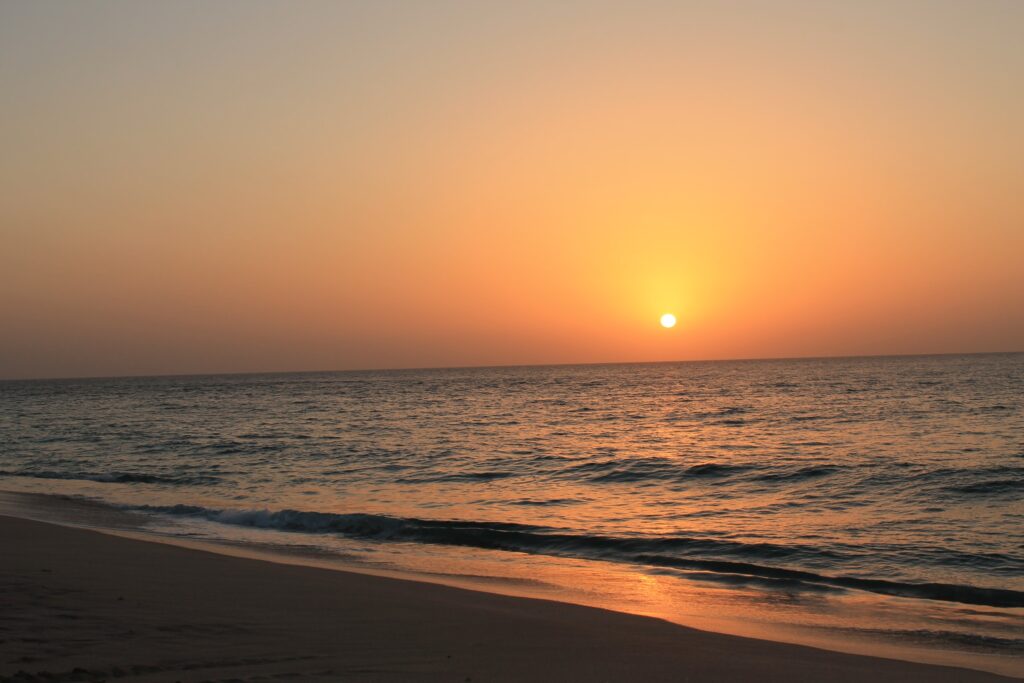Oman Expat Health Insurance Guide
Moving to Oman
Oman is one of the most historic countries in the world. The oldest independent state in the Arab world, Oman was once a world-wide super power with an empire stretching all the way to northern Africa.
Today, unlike its brash, shiny neighbour The United Arab Emirates, Oman generally has a far more traditional feel. Here one can experience ancient architecture, sleepy towns and markets that have barely changed in centuries. Travellers have commented that Oman is what the Arab world used to look like, before the sudden influx of cash; a place of peace, character and jaw-dropping scenery.
Juxtaposed against the traditional Muslim culture of Oman are all the mod cons and the modern outlook that one might expect from an oil-rich nation. Indeed, it has been argued that Oman’s cultural outlook is rather more advanced than many other Middle Eastern countries, with women receiving far more rights than many of their neighbours.
This makes visiting Oman a real pleasure. On the one hand there is so much to see and experience that expats and travellers frequently fall in love with the country. Equally the largely forward-thinking politics mean a far more accepting and less restrictive social outlook that can make integration far easier.
With tourism the fastest growing industry in Oman, surely some of the most memorable travel experiences of your life await you here.
Climate
Positioned as it is in the Middle East, Oman is best-classed as a desert country. It has one of the hottest and driest climates in the world. During the “summer”, a period lasting from May to September, temperatures have been known to reach highs of 50°C. Furthermore it is not unusual for some areas of Oman to experience zero rainfall for entire years at a time. Unsurprisingly, water is at something of a premium in Oman
Much of the interior of the country consists of dry gravel beds and sweeping orange sand dunes; a perfect home for the native Arabian Oryx. Once close to extinction, an international conservation effort has helped this eye-catching antelope species back from the brink.
The only real “fly in the ointment” is Oman’s recent decision to reduce the size of the national Arabian Oryx sanctuary by 90% to make way for further oil exploration. UNESCO promptly reacted to the news by removing the sanctuary’s World Heritage status; the first ever case.
Not all of the country is dry and desolate; there are some areas which are far more verdant. The Dhofar mountain range benefits from a climate often described as “tropical”, where monsoon rainfalls are experienced annually.
As a result of this generous rainfall, combined with the natural warmth of the area, Dhofar acts as the “bread basket” of Oman, and almost all agricultural production is focused here.
One of Oman’s major exports also springs from the mountains; the climate here is perfect for the growth of Frankincense.
In coastal areas the temperatures can be rather more manageable, where sea breezes help to take the edge off the stifling heat. With over 1,600km of coastline, Oman boasts some of the best beaches in the Middle East, which are clean, sandy and benefit from all manner of wildlife.
A range of endangered turtles can be seen in the waters off the coast, and Oman has a rapidly growing tourism industry focused on diving holidays in the clear, warm waters of the Gulf.
Climate
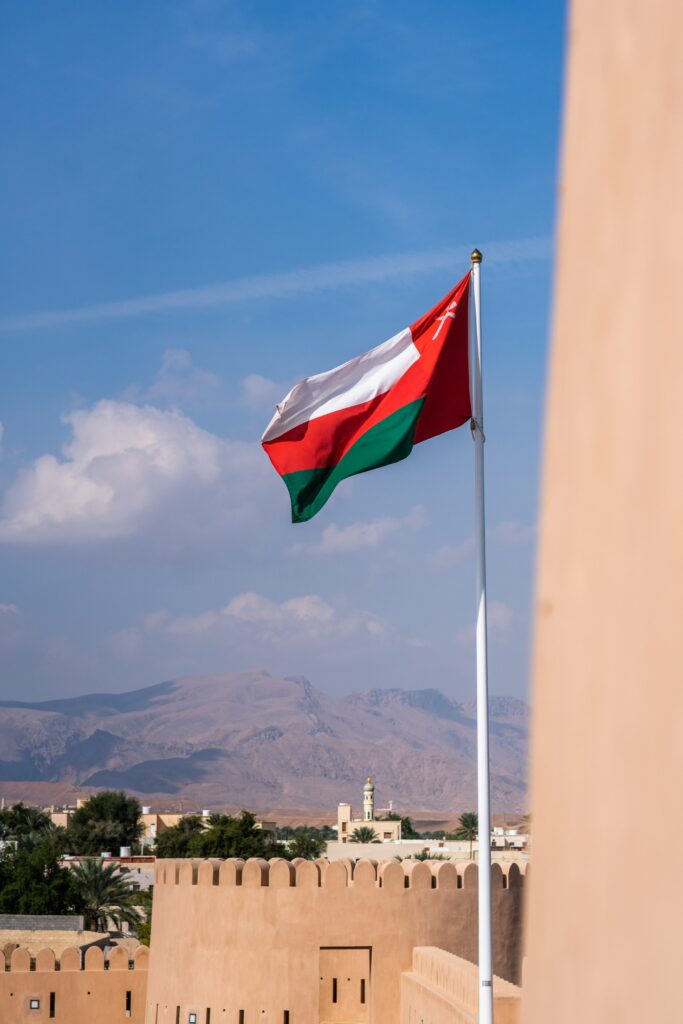
Culture
Oman has a fascinating culture which helps to make it one of the most appealing destinations in the Middle East. While Oman has oil reserves, these are far smaller than those found in neighbouring countries. As a result, Oman represents an opportunity to explore a more traditional Middle Eastern culture without the high-rise gloss of the UAE.
Oman is defined as an “absolute monarchy” which means it is run by a head-of-state, Sultan Qaboos. Sultan Qaboos is the longest-serving leader in all the Middle East. The sultan is ultimately responsible for everything that happens within the country. While there is a government to help with the management tasks, in essence the sultan can over-rule any decision.
Oman is a traditional Muslim nation. While foreigners are not expected to take part in religious life, a degree of respect is quite reasonably expected. Visitors are generally allowed to dress as they feel comfortable though extra effort should be made when visiting mosques and other areas of religious significance. Full-length trousers should be worn by gentlemen while ladies should aim to cover shoulders, arms and ankles to prevent offence.
It has been estimated that expats make up roughly a quarter of the Omani population. For this reason, expats will find themselves well-served in this country. A broad range of languages, cultures and cuisines sit side-by-side as a result, and most expats find this diversity makes integration both easy and rewarding.
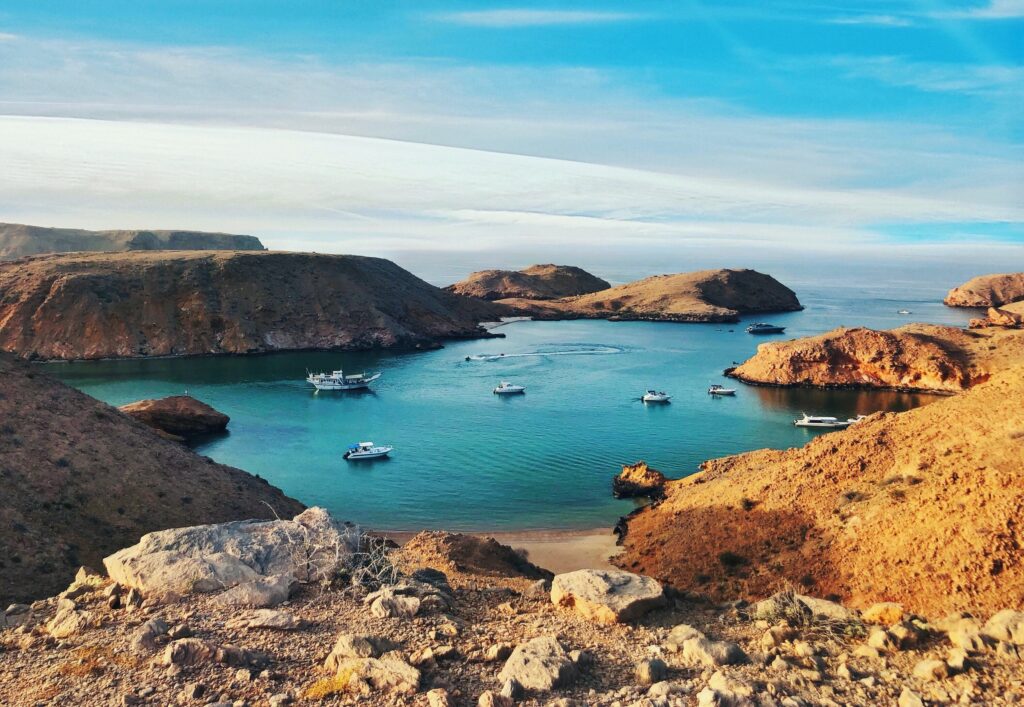
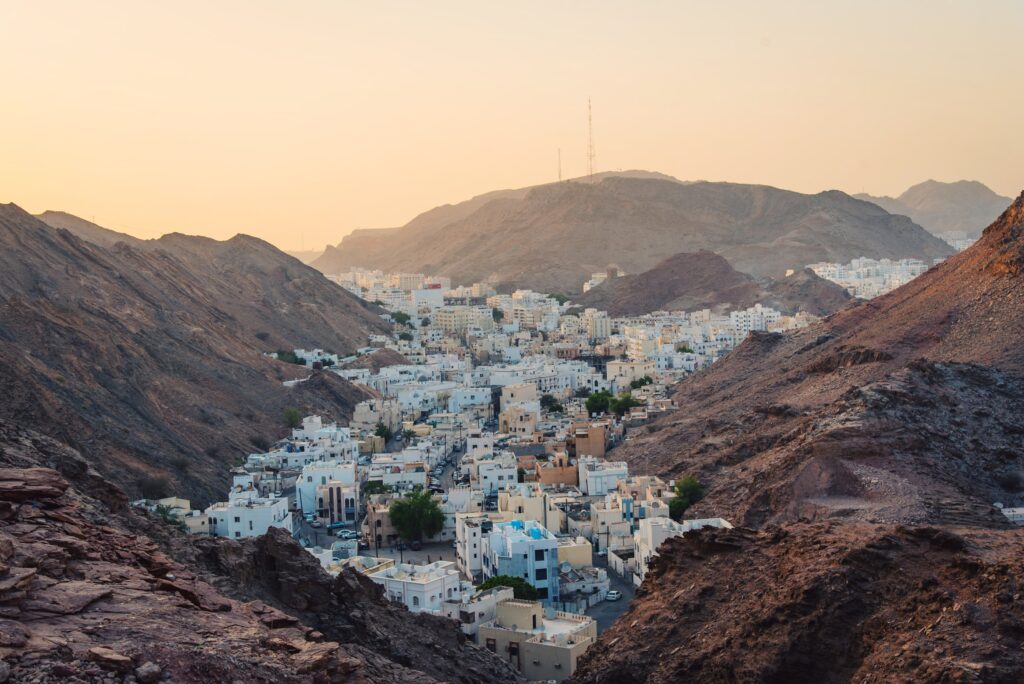
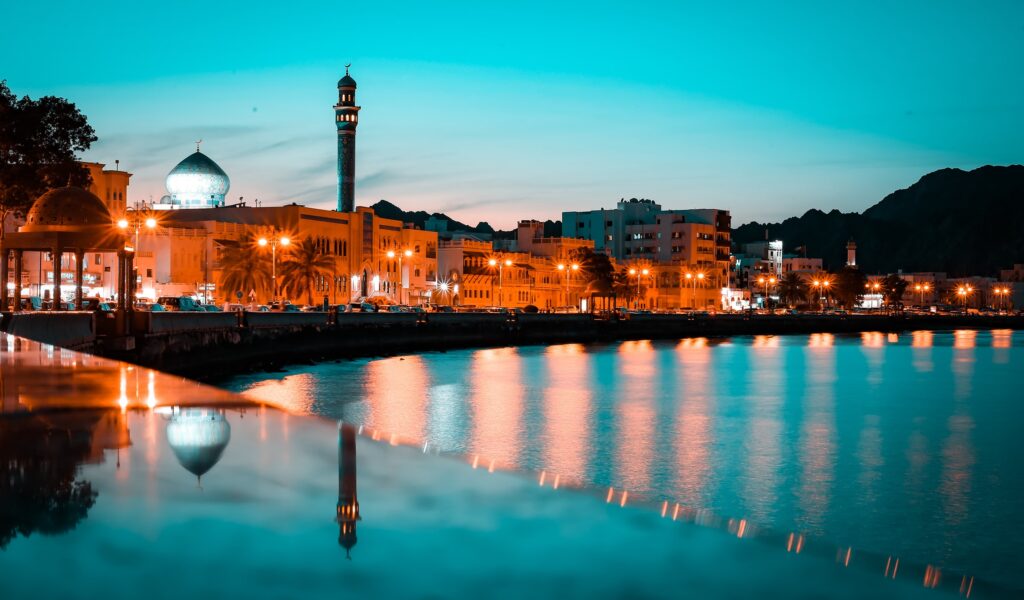
Language
The official language in Oman is Arabic. The cosmopolitan nature of Oman however means that a wide range of languages are spoken and understood. English is almost like a second language that can be understood by many Omanis.
If you plan to visit one of the bigger cities like Muscat it is safe to assume that communicating in English throughout your visit should pose very few problems. On the other hand, the further you venture into rural areas the less likely it is that someone will speak your language. In such cases, it can be a wise idea to hire a native translator.
Transportation
One of the few features that lets Oman down as a tourist destination is its transportation infrastructure. Travelling within the major cities is simple enough, though venturing out the safety of urban landscape can be rather more problematic.
For one, you won’t find a railway in Oman, though this is set to change shortly. Buses may be caught but visitors are encouraged to use those operated by the Oman National Tourist Corporation (ONTC) which are considered up to Western standards.
Within the major metropolises taxis are safe, plentiful and – thanks to the oil reserves – cheap. As a result they are arguably the best way to get around. This is especially so when you’ve observed how drivers behave on the road in Oman.
Driving in Oman can be surprisingly dangerous, especially for those unfamiliar with what passes for driving etiquette. Car owners here like to drive fast, irrespective of the weather and the visibility. Fog and rain are unlikely to dampen their love of tailgating and talking on the phone while driving down the street. Car accident rates in Oman are some of the highest in the world so visitors should be aware of this and take suitable precautions where possible.
For those willing (or needing) to take their chances with the Omani traffic, visitors may exchange their own driving license for an Omani license. An eye test is normally required to gain access to your new license. Despite the risks of driving in Oman, these danger are largely confined to the major cities. For the expat or tourist seeking to explore the country fully, you will probably have to rely on a vehicle to get around.
Should you decide to hire a car, a four-wheel drive model is recommended. Such a car offer superior protection if you are unlucky enough to be involved in an accident. In addition such vehicles are really the only type capable of dealing with the sand and gravel you may find outside the major areas.
Transportation
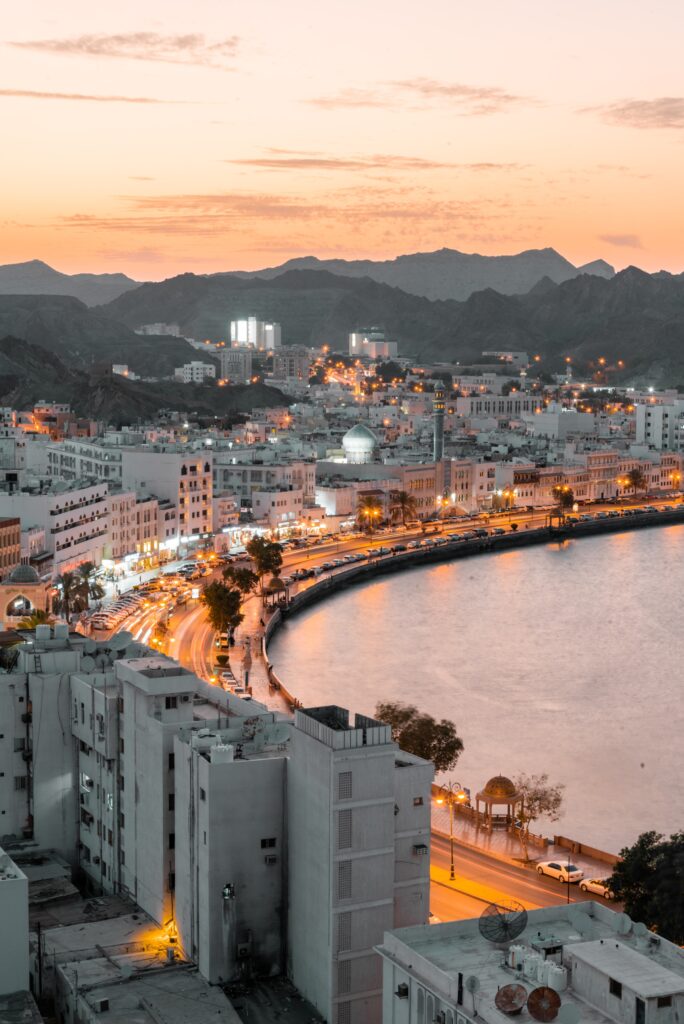
Healthcare in Oman
Healthcare has been a focus of public policy for the last few decades and Oman now offers some of the highest quality care in the world. A report in 2001 by the World Health Organization ranked the quality of care in Oman as number eight in the world.
While high standards of care can be expected, medical care in Oman can be expensive. Expats and tourists will be expected to pay for their own medical care so fully-featured health or travel insurance for expats should be considered obligatory.
The ambulance service in Oman is a recent addition and there have been complaints about the speed of service received. It seems to be taking the drivers some time to get used to the process. It has been suggested by some experts that it may be better to drive a patient to hospital yourself, rather than waiting around for an ambulance that may get lost on the way.
Money
The currency in Oman is the Rial. Unlike many other countries around the world, US Dollars are not readily accepted so a supply of the local currency should be maintained. Note that within the major cities credit cards are regularly accepted, though should you venture into more rural areas cash will normally be required.
As a Muslim nation the working week runs from Sunday to Thursday. It is important to bear this in mind as visiting a bank on a Friday or Saturday can consequently be rather problematic in Oman.
For long-term expats considering opening an Omani bank account there is one interesting point of note that you be aware of. In Oman it is illegal to bounce a cheque, a situation that can lead to imprisonment.
Take extreme care therefore before writing a cheque from an Omani bank account, and note that in the case of bounced cheques you will normally be expected to fulfil your commitment before being allowed to leave the country.
Schooling
Oman has an impressive educational system which now boasts adult literacy rates of almost 90%. That said, while expat children are more than welcome to attend local schools, the Arabic language and alphabet can make it difficult for children.
It is therefore normally preferable to enrol children into one of the many international schools present in the larger cities like Muscat. There have been grumbles recently about rising tuition costs so do your research fully in advance. Wherever possible confirm prices before enrolling your children in order to avoid an unpleasant surprise down the road.
It is worth noting that schools in Oman largely stick to the same holidays as schools in the UK which can make the transition from one school to another rather easier. You could, for example, choose to move during the long school summer holiday, allowing your child to complete their last full year at home before commencing a brand new year in Oman.
While Oman offered no universities whatsoever before 1986 there are now a number of high quality institutions available when compulsory schooling finishes.
Food and Drink
As a cultural melting pot with almost a million expats living within its borders it should come as no surprise that the cuisine on offer in the Sultanate is broad and varied. From Chinese to Indian food, whatever your tastes you are unlikely to struggle to find a suitable option.
However for visitors seeking for a more authentic experience, traditional Omani dishes may be sampled. The typical diet here is rich in various sources of meat, including a burgeoning seafood market. An excellent, and very popular, example is shuwa. Meat is infused with a range of local spices and then cooked incredibly slowly – a process that can take days rather than hours. The end result is incredibly sweet and tender meat that really has to be tried to be believed.
Rukhal is a traditional thin circular bread that is served with many classic Omani meals. It may be eaten with any meal though most commonly is an ingredient at the breakfast table, served with locally-produced honey or jams.
The moister areas of the country are often clothed in palm trees, making dates a very popular ingredient in Omani cooking. Those with a sweet tooth may also want to sample the Halwa, a traditional sweet made from brown sugar and often flavoured with nuts or spices.
As a Muslim country, it should be noted that native Omanis do not consume alcohol. As an outsider you are able to legally purchase and consume alcohol although this must be done through one of the carefully-licensed pubs or bars. Drinking alcohol in public is a strict no-no and could land you in trouble with the local police.
Food and Drink
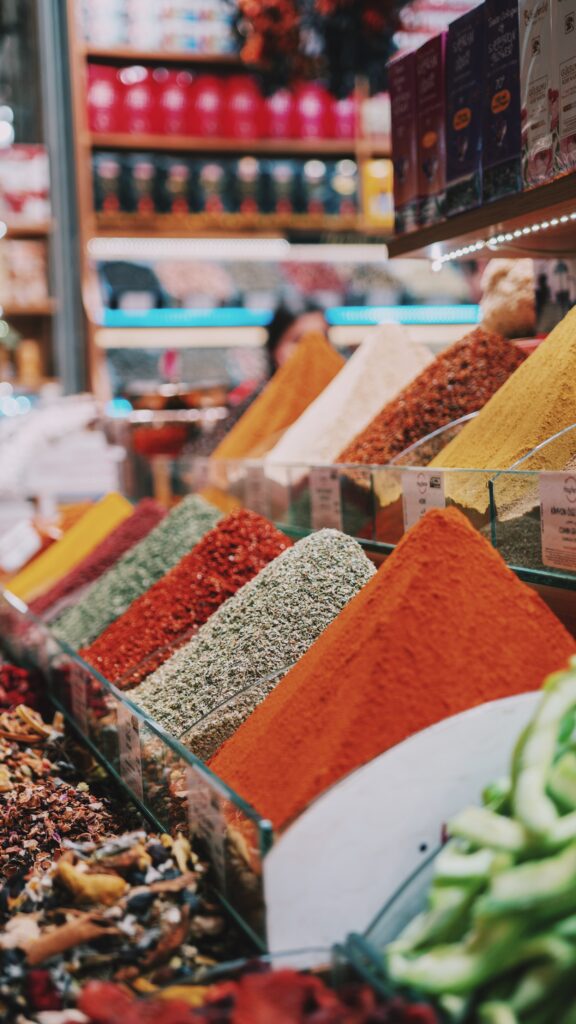
Safety
Oman is generally considered to be a very safe country to visit with minimal crime rates. As always though, a little caution is advisable. For one, keep valuables with you at all times so as to avoid unwanted attention from petty thieves.
Note that it is a crime to criticise or insult the Sultan or his government in any form – this includes digitally. Therefore you should aim to keep any negative opinions to yourself while on your visit. Be aware that both Omanis and visitors alike are expected to keep identification documents on them at all times and police may request documents at any time.
Besides the possibility of accidents on the road the other source of harm can come from surprise flash floods. While Oman may not receive too much rainfall each year, when it does arrive the rain can cause flash floods that take drivers and pedestrians by surprise. This is especially so in the mountainous regions so pay attention to weather reports and take precautionary steps as necessary.
Places to Visit
Oman is a large country with a history dating back thousands of years so it should come as no surprise that the country offers tourists a huge range of experiences. Those with an interest in history will find themselves particularly well-served by the wealth of ancient buildings and towns.
Here are some of our top recommendations for those visiting Oman:
Muscat
Crowned the Arab City of Culture in 2012, Muscat is the largest city in all of Oman. Visitors are often surprised at how lush and green the city is, with many parks and beautifully manicured gardens. All this greenery is set against the classic white stone buildings boasting quaint, old-fashioned charm.
Muscat
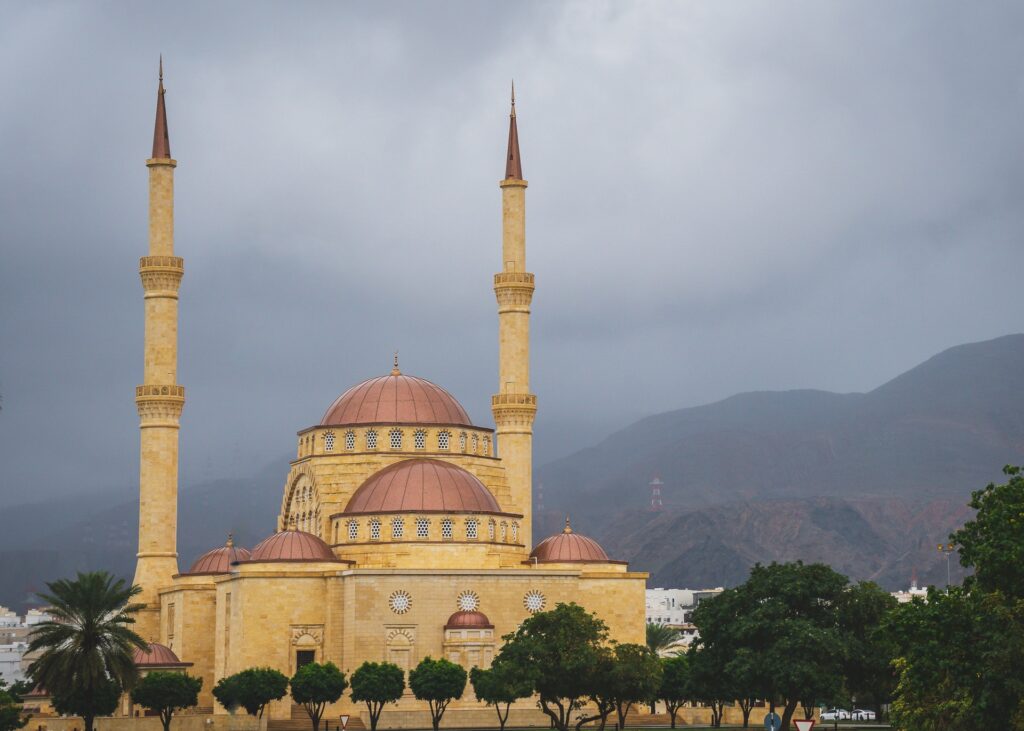
Wahiba Sands
For anyone who has ever harboured “Laurence of Arabia” dreams, Wahiba is a must-see destination. Rich golden sand dunes stretch as far as the eye can see, reaching heights that have to be seen to be believed. Take the time to explore some of this Wales-sized area by camel, and for the ultimate desert experience spend a night under the stars drinking sweet tea with the locals.
Wahiba Sands
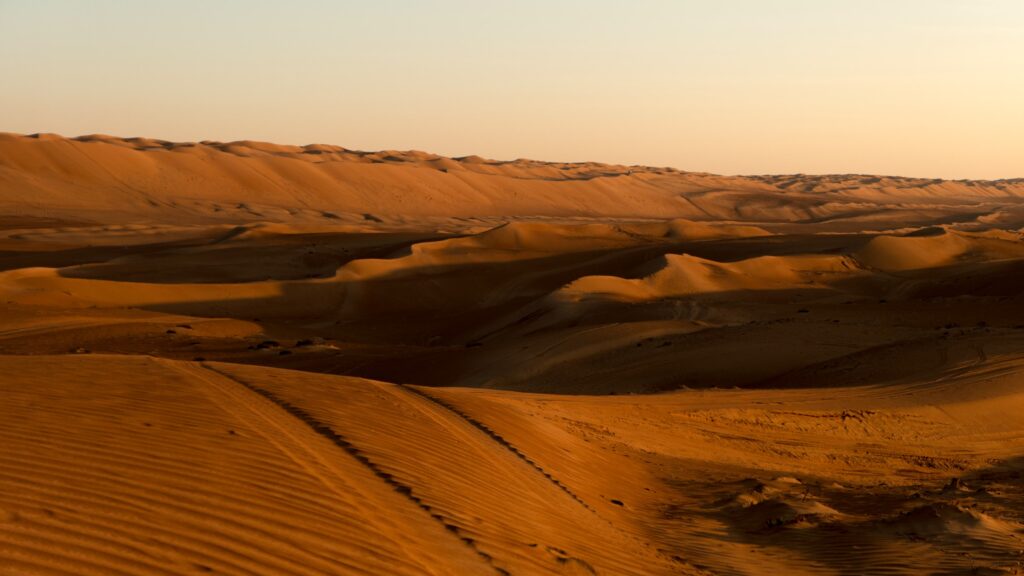
Musandam Peninsula
Known as the “Norway of the Middle East” this peninsula boats stunning fjord-like cliffs jutting into the deep turquoise sea. The sandy beaches are ripe for sun bathing, exploring and searching for seashells, while the water is warm and clear; perfect for snorkelling.
For the best view of the mountainous outcrops though hire a boat (and driver) to take you on a tour of the local coastline with its jaw-dropping geological monuments.
Musandam Peninsula
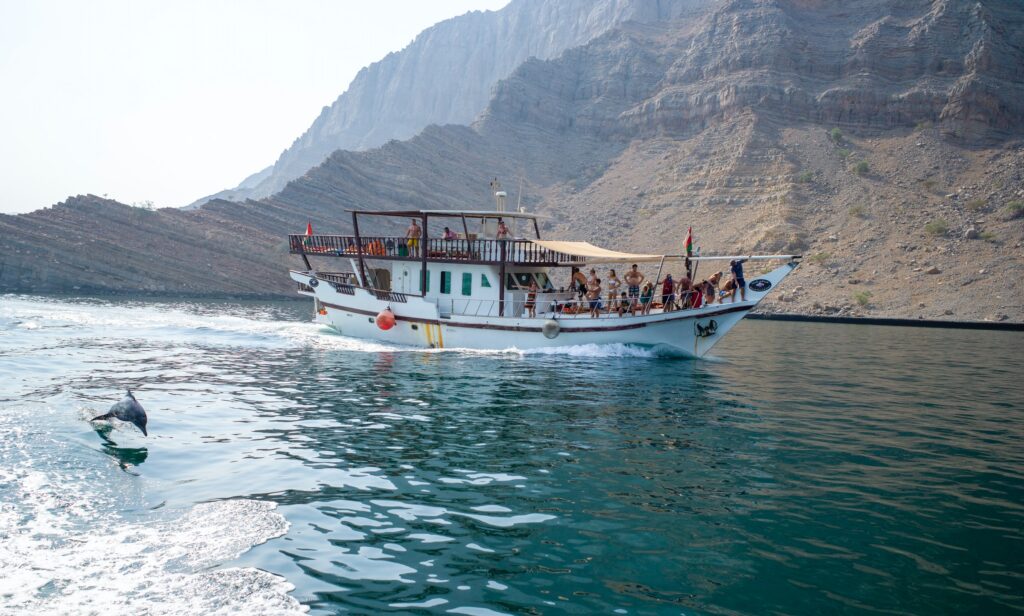
Nizwa
Nizwa is a shopper’s paradise, boasting one the largest and most extensive open-air markets (souqs) in all of the Middle East. From traditional arts and crafts to locally grown produce a day spent shopping here will quickly furnish you with all the gifts you’ll need for back home.
The city itself is well worth exploring, as it offers some of the oldest mosques in all of Oman. The regular livestock market is also a regular, colourful spectacle worth taking the time to see. Here hundreds of locals gather to buy and sell goats and other animals.
Closeby you will find Wadi Ghul, Oman’s answer to America’s Grand Canyon and offering similarly epic views for miles into the distance.
Nizwa
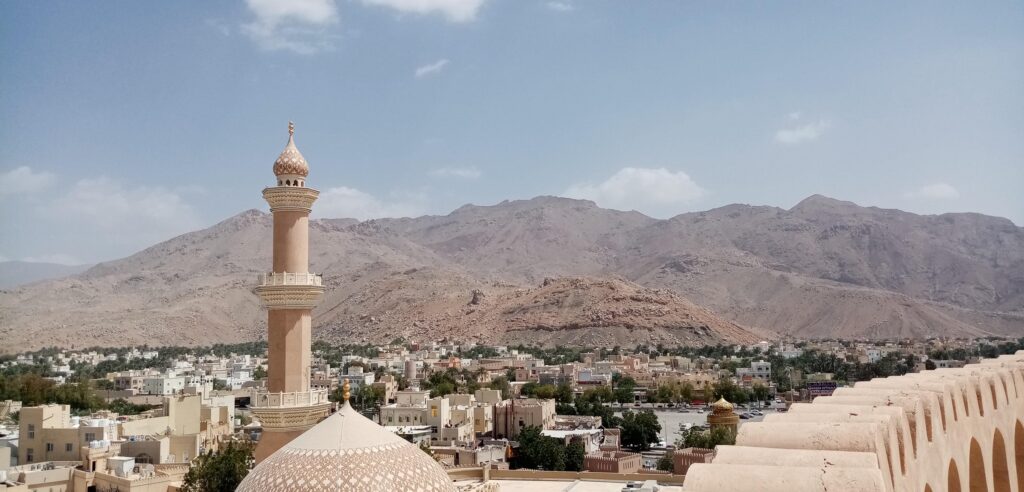
Ras al-Jinz
For the wildlife fanatic Ras al-Jinz represents one of the real highlights of Oman. Visit at the right time of year (June to August) and you will be privy to hundreds of rare green turtles hauling themselves out of the ocean to lay their eggs on the sandy beach. For best results hire a guide to ensure that you stand the best chance of seeing the local turtles.
Ras al-Jinz
